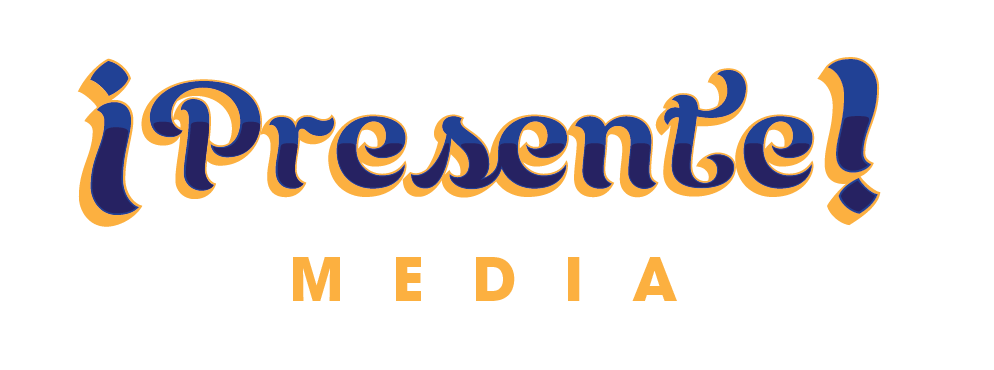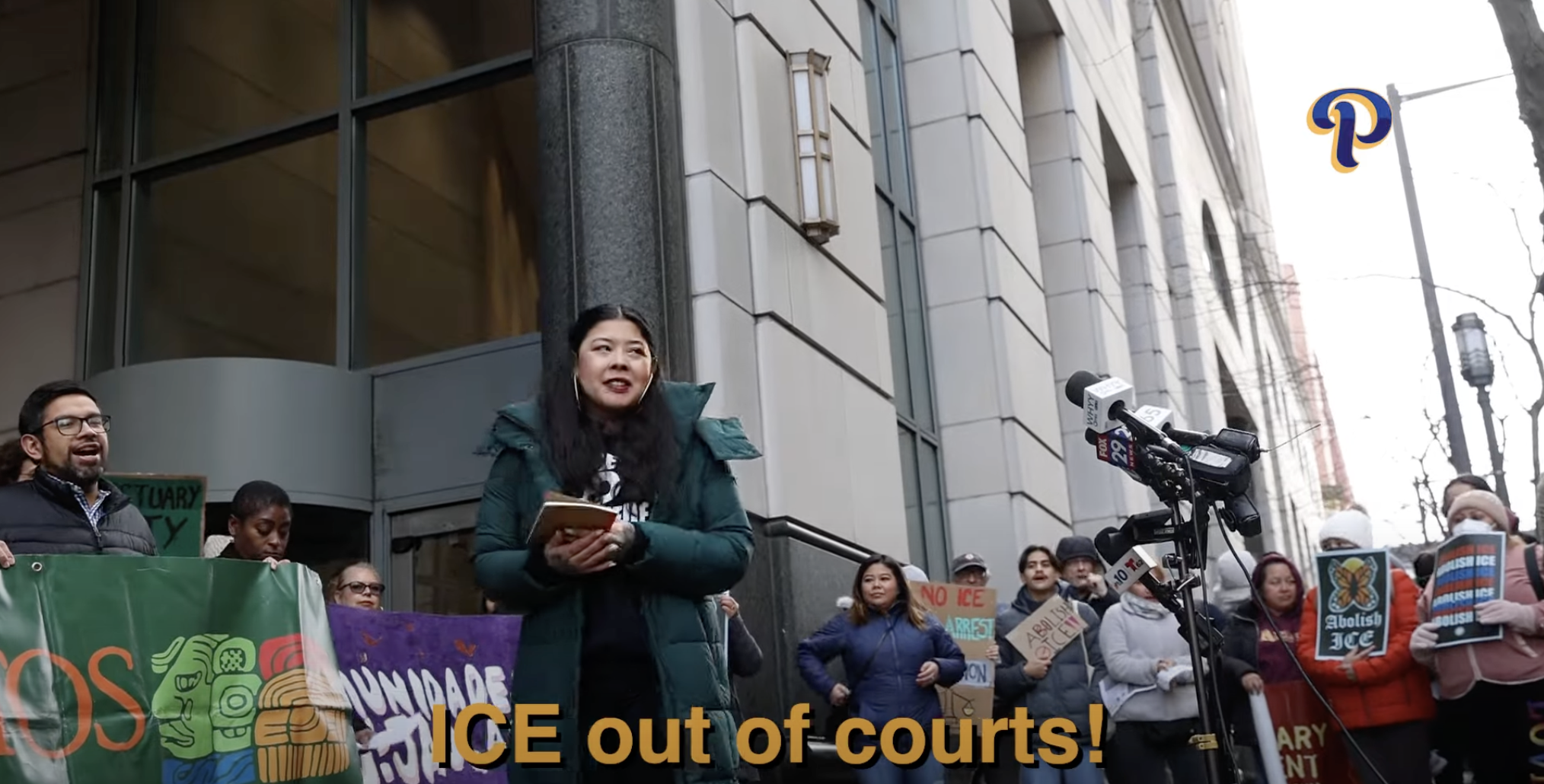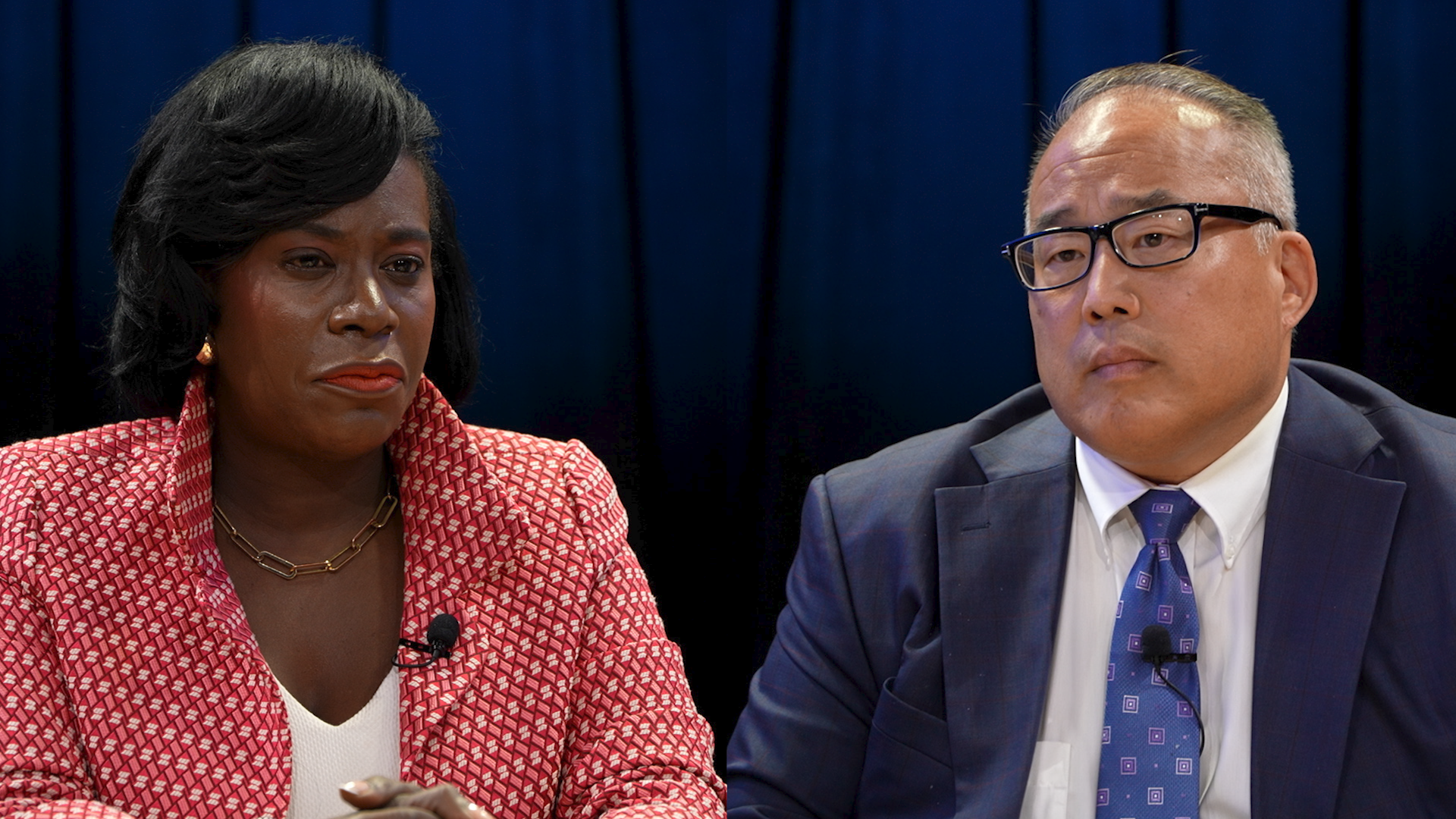Having a seat at the table - Philly Latine artists urge the new mayor to consider artists’ perspectives
BY VALERIE DOWRET EL 16 DE MAYO DE 2023
Gabriela Sanchez at the Hidden Disability Project for Power Street Theater. (Photo by Aidan Un)
Artists bring $3.4 billion into Philadelphia’s economy and generate $81 million in tax revenue, but some don’t feel valued by the city government.
¡Presente! Media spoke to four local Latine artists about what they’d like to see from the next mayor, more artistic spaces, city contracts, and being heard are on the roster.
Salomé Cosmique (fourth person to the right) at the Voces de Inmigrantes community art project. (Courtesy of Salomé Cosmique)
Multi-faceted artist Salomé Cosmique believes in the healing power of art. After almost 15 years working as a visual and performing artist, the Colombian native moved to Philly, in 2017, to run community projects, and curate exhibitions.
“I've been a teacher, I was an interpreter for the School District too and for many artists it's kind of difficult, just to live with your artwork,” Cosmique said. To get by, she applies for grants and works with museums and non-profits.
Kenty Love (third person to the left) playing the opening act for Diamante Electrico at Milkboy. (Photo by Marisol Quintana)
In the fall of 2019, she began working with the Barnes Foundation and the bilingual non-profit Puentes de Salud teaching Spanish-speaking toddlers art and English. But, due to the pandemic, the program shut down in 2020, leaving Cosmique out of work.
Her artistic efforts, focused on the immigrant community, earned her a grant from the Leeway Foundation— an organization that funds artists and producers who identify as women, transgender people, or gender non-conforming. And, as she found out she was soon to be a mom, her work as an interpreter for the Philadelphia school district helped her stay afloat.
In December 2021, Cosmique took a break from work to take care of her newborn. “As a mother, artist, and immigrant, it was very difficult; it wasn't sustainable to be at home without work,” Cosmique said. But, in a city where most families pay over $10,000 a year for daycare, childcare was not an affordable option for her family. She moved to Puerto Rico in April 2023.
Why not stay in Philly and continue applying for grants? According to Cosmique, grant funds are not always enough to sustain an income. And, the application processes can be particularly difficult, especially for immigrants who do not speak English as their first language.
Puerto Rican musician and composer Kenty Love resonates with Cosmique’s sentiment. “Whenever they need us, they look for us, you know? but when we need them, we cannot find them,” said Love.
Love, who sings Latin Pop music, is also a promoter at Philly Alternativo, an organization that promotes artists, especially Latine musicians, by organizing concerts across Philly. He also mentioned, from his own experiences, that just applying is not a guarantee of being selected.
Musician Kenty Love. (Photo by José Rico)
Difficulties, however, don’t end at the grant level.
Both Love and Cosmique would like to see the city government provide more support for artists’ careers through workshop spaces, and more community activities geared toward art.
Love, who grew up between Philly and Puerto Rico, witnessed gun violence firsthand as a teenager. To help him cope with that reality, his stepfather taught him how to paint. “I remember him saying that everyone that started painting or [playing music] any type of music, somehow turned out to be more calm and more passive and creative. I'm an example of that,” said Love.
He believes the next mayor should prioritize community spaces, such as REC Philly — a space where artists can record music or rent video equipment, in order to help reduce the city’s violence crisis.
Philadelphia Cultural Fund executive director Gabriela Sanchez, who also co-founded Norris Square-based Power Street Theatre in 2012, highlights the importance of art as a positive reference to her own roots. “I have never learned about my Taino culture in the school curriculum. I had to go learn at the dinner table with my parents or at Taller Puertoriqueño”, mentioning one of the most prominent cultural organizations focused on Latin culture located in North Philly.
Gabriela Sanchez. (Photo by Gene Smirnov)
When the government fails to provide recreational spaces, people take it upon themselves to create places where art can thrive. But, it isn’t easy. In the last decade, Power Street Theatre has been an example of that, by connecting Philadelphia neighborhoods through art and offering theater classes for adults in West Philly at Painted Bride Art Center. “We are a very powerful city in so many ways when I look at all the sectors and I think it's just reevaluating who has access to resources and who doesn't,” said Sanchez about the need to make funding more accessible to artists.
According to the “Philly jawn born and raised,” as Sanchez calls herself, the next mayor should work on creating and maintaining connections with the community beyond election day, as well as allocating funding for school art curriculums. “If we don't have the funds to do that, we're going to continue to see crime at an all-time high,” she added.
Wi-Moto Nyoka, horror and sci-fi writer and founder of production company Dusky Projects, also considers funding the arts a priority. To her, whoever becomes the city’s leader should consider artists’ transferable and valuable creative skills.
The cast of Wham!, a young adult production for Dusky Projects. (Photo by Lizette Terry)
“I would urge the next candidate to start thinking of artists not just as entertainers, but as people who should be in the room when they're discussing policies, when they're discussing city planning,” Nyoka said.
According to Love, creating bridges between art and policy could start with something as simple as policymakers meeting with artists on a one-on-one basis and listening to their ideas. Sanchez reiterates the importance of having not only artists by Latine artists’ perspectives present in the policy decision-making spheres: “I want to see a fair, reflective world, in the arts and culture sector that is reflective of the city.”
This article is a part of Every Voice, Every Vote, a collaborative project managed by The Lenfest Institute for Journalism. Lead support is provided by the William Penn Foundation with additional funding from The Lenfest Institute, Peter and Judy Leone, the John S. and James L. Knight Foundation, Harriet and Larry Weiss, and the Wyncote Foundation, among others. To learn more about the project and view a full list of supporters, visit www.everyvoice-everyvote.org. Editorial content is created independently of the project’s donors.










